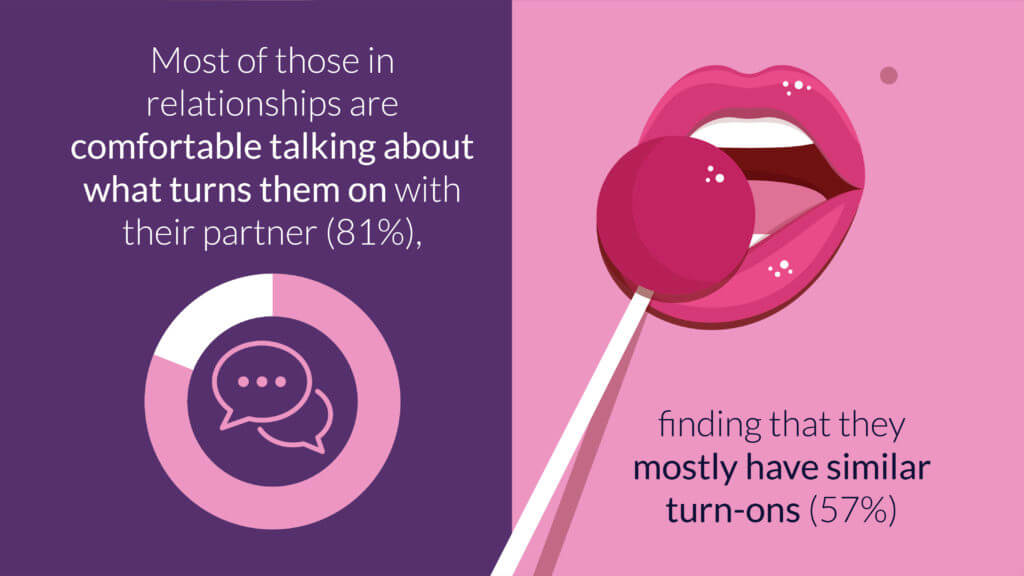New romance survey reveals that poor hygiene is by far the biggest turn-off when it comes to dating.
NEW YORK — A fifth of Americans admit they can be judgmental towards someone regarding what turns them on (22%). A survey looking at 2,000 sexually active adults’ preferences finds that although many are opinionated, one in seven are also afraid of being shamed for their own turn-ons.
From foreplay (63%) and neck kisses (41%) to being a good kisser (38%), respondents who have hooked up with a one-night stand have an easier time admitting their preferences to someone they’ll never see again (67%). Conducted by OnePoll for LELO, the survey also finds that people are most likely to be vocal about their turn-ons (74%), but aren’t shy about bringing up what turns them off, either (64%).
Across the board, the top things that would turn people away from a partner are poor hygiene (60%), talking about exes (33%), and being flirty with other people (31%).
Most of those in relationships are comfortable talking about what turns them on with their partner (81%), finding that they mostly have similar turn-ons (57%) – although 28 percent say they have different preferences.

People even share their kinks with friends
Turn-ons are a hot topic outside of the bedroom, too, with half of those surveyed saying they’re comfortable talking about their preferences with their friends (49%). When it comes to serious relationships, three-quarters of Americans see that conversation as a milestone (75%), and a similar percentage think it’s an important discussion when they’re committing to someone special (77%).
This may be why people prefer to be in a relationship for at least three months before bringing up what gets them going (53%).
“Honest communication between partners is crucial in any relationship,” says Luka Matutinovic, chief marketing officer at LELO, in a statement. “Of course, there is always a bit of reluctance when it comes to the most intimate topics, and talking about someone’s turn-ons and turn-offs is one of them. This is understandable, but we always encourage people to speak about it openly when the right time comes – and you will feel that moment. All should be aware of these conversations’ significance for the relationship; they lead to more trust in each other, create more confidence and respectfulness, and make a key to a healthy and safe bond between partners.”
Some people still hold back in the bedroom
More than half of respondents also revealed they’ve been in a relationship where they haven’t been honest with a partner about their turn-ons and turn-offs (56%). Further, one in six survey-takers who are in relationships now say their current partner doesn’t even know of all their turn-ons.
When it comes to being honest about what they like, 38 percent wouldn’t mind cutting to the chase, saying they’d be open to listing their turn-ons and turn-offs in a public dating profile.
Understanding what you like comes with experience, with 55 percent agreeing they have more turn-offs now than when they were first sexually active.
“From time to time, it comes to changes in someone’s sexual preferences, which is completely normal; it can be because of new inspirations, different moods, personal growth, satiety, etc.,” says Matutinovic. “That’s why it is important to nourish intimate conversations frequently and in accordance with your likes and dislikes. This is the only way to optimize the complete sexual experience and have both partners pleased and satisfied.”

Only 1 in 7? Someone is lying.